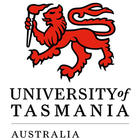Associate Degree in Agribusiness
Associate Degree in Agribusiness
The Associate Degree in Agribusiness is an industry-focused course that prepares people to become dynamic, creative, and adaptable practitioners with the skills and knowledge to ensure that the business of agriculture is profitable and sustainable in a modern economic climate. It is an ideal steppingstone for those currently working in…
Categories
COURSE DESCRIPTION
The Associate Degree in Agribusiness is an industry-focused course that prepares people to become dynamic, creative, and adaptable practitioners with the skills and knowledge to ensure that the business of agriculture is profitable and sustainable in a modern economic climate. It is an ideal steppingstone for those currently working in agriculture who wish to move into leadership and management roles, or a great foundation for those wishing to enter the industry.
The program combines business management, planning, finance, people management, innovation, and primary production in an authentic learning approach, utilising applied, blended, and online interaction. The course content has been developed in consultation with industry experts and they are actively involved in its delivery.
A key feature of the course is the integrated learning approach that applies an array of experiential education opportunities such as site visits, field work, case studies, simulated work environments, and data-driven decision-making. This aims to enhance students’ problem-solving, communication, critical thinking, teamwork, and leadership skills by allowing them to ‘learn through practice’. It’s designed to make university study less daunting and more practical.
The program is available for full-time and part-time study and is delivered through online study, tutorials, and practical workshops. Completing our Associate Degree in Agribusiness will give you:
a pathway to a great career in agriculture
solid commercial awareness of agribusiness industries
practical skills to take straight into the workplace
opportunities to advance in your chosen field
the skills to help you meet personal career development goals
credit towards a Bachelor’s degree at the University of Tasmania
Learning Outcomes
1 Evaluate knowledge, skills, behaviours and attributes required to develop and enhance career opportunities in agribusiness;
2 Evaluate the relationship between business concepts and science theory for contemporary agriculture;
3 Reflect on and communicate practical management approaches for changing agribusiness environments;
4 Use cognitive, creative and technical skills to enable agribusiness to be agile and adaptable in digital and innovative landscapes;
5 Interpret and apply the principles of sustainable business practice through ethical, professional and collaborative conduct.
Career outcomes
The Associate Degree in Agribusiness will help you to progress from assistant positions to managerial roles, lead a small team, become a field officer, research team member or salesperson and liaise better with suppliers and/ or customers. Career opportunities exist both within the agriculture industry, and sectors and occupations that are connected through agribusiness. These include:
Upstream of the farm: suppliers of seed, fertiliser, chemicals, machinery, stockfeed, labour, finance, business advisory, transport, consultancy, and specialist services such as harvesting contractors.
Primary production: cropping, horticulture, animal based enterprises, aquaculture, pharmaceuticals, wineries, farm-based tourism.
Downstream of the farm: processors and value-adders, distributors, wholesalers, retailers, transport and storage operations, logistics, consultants.
Course structure
The Associate Degree in Agribusiness comprises 16 x 12.5 credit point units:
– 6 x core units (75 credit points) at introductory level
– 6 x core units (75 credit points) at intermediate level
– 4 x electives (50 credit points)
REQUIREMENTS
Admission to undergraduate courses at the University of Tasmania requires the completion of qualifications equivalent to a 12th year of education in Australia.
You can also meet the General Entry Requirement for this course with the following qualifications or prior studies:
Completion of an equivalent AQF Certificate III or above; or
Complete or incomplete (minimum 12.5 credit points) of previous tertiary study at Diploma level or higher
English language test scores: IELTS (Academic) – 6.0 (no individual band less than 5.5); TOEFL (iBT) – 72 (no skill below: Reading 10; Listening 9; Speaking 16; Writing 19); PTE Academic – 50 with no score lower than 42; UTAS English for Academic Purposes – EAP2 – 60% (no individual score less than 55%); Cambridge English C1 Advanced or B2 First – 169 with no less than 162 in any skill; Australian Education Management Group (AEMG) DEP EAP2 – Minimum overall score of 70% and no section score of less than 65%.
EDUCATIONAL INSTITUTION
The University of Tasmania was officially founded on 1st January 1890 and is located at Sandy Bay, Tasmania. In addition to the main campus at Sandy Bay, it also operates out of the Newnham Campus and the Cradle Coast Campus. The most popular courses offered are the environmental studies that include wilderness management, marine sciences and indigenous studies in Tasmanian literature. Other unconventional courses include agriculture development, studies on the community and population and ocean study programs. The university also comprises of a Music Conservatorium, Art school and a School of Clinical studies.




